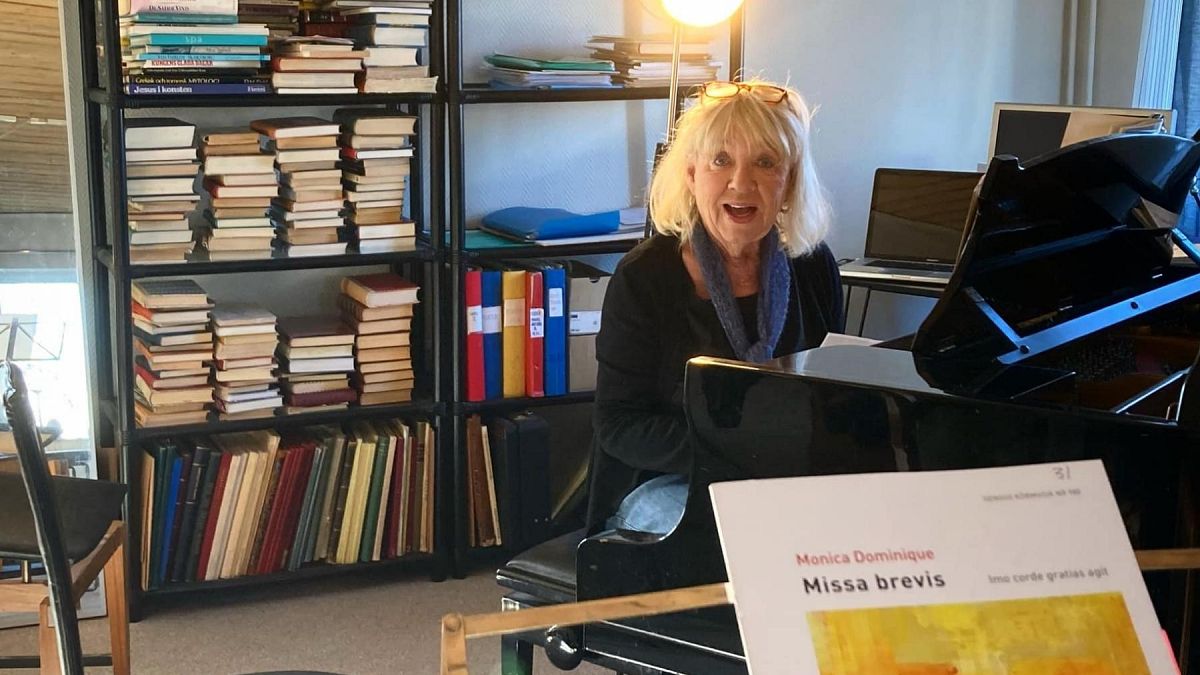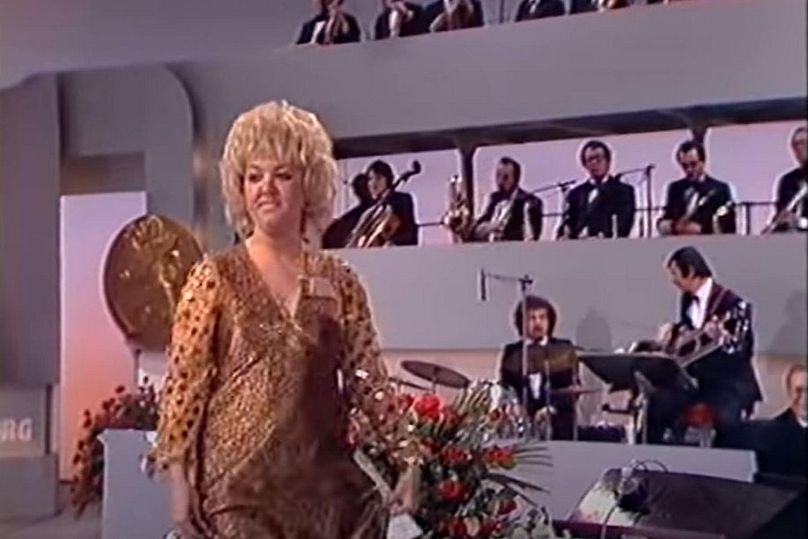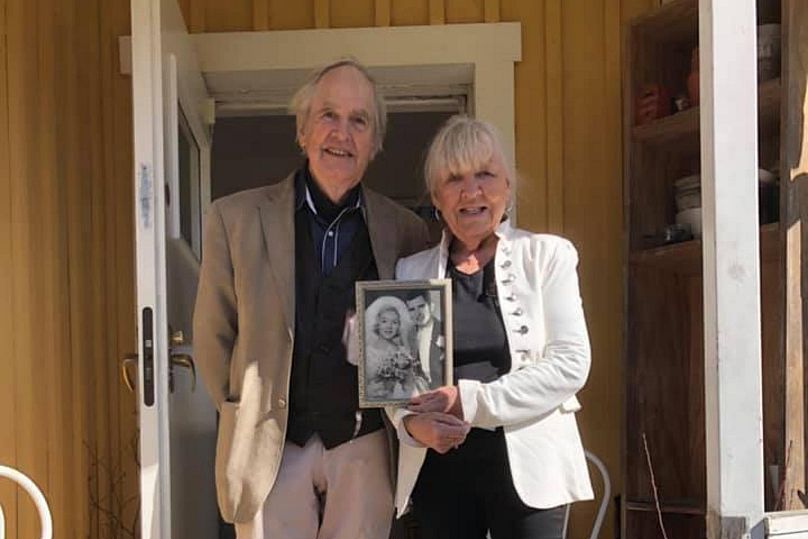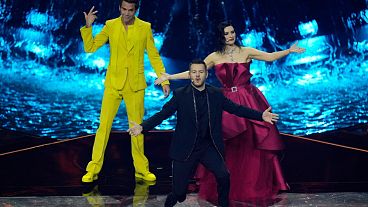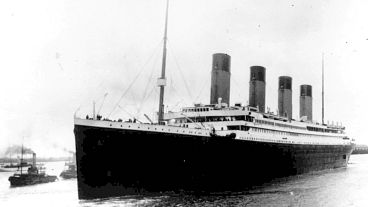The year was 1973, the venue was Luxembourg, and Swedish composer and conductor Monica Dominique was about to make musical history.
When Monica Dominique took to the stage in her flowing, glittery gold dress, she knew she was already making history.
The year was 1973, the venue was the Grand Théâtre in Luxembourg City, and Monica was the first woman to ever conduct a Eurovision orchestra.
Since the start of the contest in the mid-1950s, a live orchestra had been an integral part of the performances -- usually featuring a conductor from the performing nation.
But until that Luxembourg final, all the previous conductors were men.
“It was just guys everywhere at that time,” Monica, now 81-years-old, told Euronews from her home outside Stockholm.
“I wrote the arrangement for big band and strings, and I was conducting it in Sweden first. And they said you might be the first woman conducting the Eurovision orchestra, but I was used to being the only woman among a lot of men,” she said.
“Of course I was nervous but on the other hand I was very sure. I knew it was well written, it sounds good and at the rehearsals the musicians were happy and I was happy too. But of course it’s a very big occasion, absolutely. And sure I was nervous.”
“I should be proud to be the first woman, and I am.”
1973 - A year of Eurovision firsts
Luxembourg’s 1973 Eurovision Song Contest saw a number of ‘firsts’. Along with Monica Dominique, there was another female conductor from Israel Nurit Hirsh who took to the stage a few minutes later.
It was Israel’s first time at the Song Contest, and like Monica, Nurit had also composed and arranged the Israeli song ‘Ey Sham’. She would go on to find even greater fame writing Israel’s 1978 Eurovision winner ‘A-Ba-Ni-Bi’, and is still performing in her homeland where she’s achieved national treasure status with her long career composing religious music.
Luxembourg 1973 was also the first year that Eurovision language rules were changed, so that performers didn’t have to sing in their country’s official language.
Sweden’s song, ‘You’re Summer’ was written in a hurry -- and originally in Swedish. Monica and her husband composed the melody, while a renowned Swedish poet penned the lyrics. The whole thing was completed just a few hours before the Swedish national final with a duo called Malta performing the track. The band would have to change their name temporarily for the contest to The Nova (with their trio of backing singers The Dolls), to avoid any confusion with the country -- although ironically Malta pulled out at short notice, and ended up not sending a song that year.
”We thought the entries were quite similar from country to country. Every tune sounded all the same, so Carl-Axel my husband said: couldn’t we try to make a song that’s not 'schlager'?” Monica explained, referring to a genre of music popular in northern Europe with strong instrumentals, and simple, happy or sentimental lyrics.
“Just a song that we like and perhaps other people will like it too!”
After being selected to represent Sweden, ‘You’re Summer’ was translated into English, although some of the lyrics haven’t aged well, including “your breasts are like swallows a-nesting” which raised eyebrows at the time, but was ultimately not censored by the European Broadcasting Union.
On the way to winning the Swedish selection finals, Monica’s song beat out ABBA's entry 'Ring Ring!'.
“I think their next year’s song, 'Waterloo', was better than Ring Ring!,” exclaimed Monica.
After all the votes were counted in Luxembourg, Monica's song came a very respectable fifth, but ABBA would of course go on to win the contest the following year.
Eurovision parties and bodyguards
The Eurovision Song Contest in 1973 was quite different to the modern-day event. Today, it's an intense schedule, with pre-contest concerts and parties, promotional tours by artists; and a fortnight of press events, red carpet galas and relentless rehearsal schedules.
But there were still parties, and drama -- it was the 1970s after all!
“Yes, there were parties. And we gathered in small groups and talked, we found friends from all over Europe and had a very nice time,” Monica said.
“And at the same time it was a bit dramatic too, because the Israeli group they had, the whole time, bodyguards with them, and even during the concert there were guards in the audience with loaded guns!”
Monica Dominique is still very active in the Swedish music scene, performing concerts several times a month, including a recent recital on a Baltic Sea Cruise. So does the Grande Dame of Swedish Eurovision still make time to watch the contest?
“No, not so much. At least, only now and then.”
“I think it’s too much circus, too much lightning and it should be more about the music. It’s too commercial.”
She’s also not a fan of the contest without a live orchestra, a feature that was cut to save costs in the late 1990s.
“Music for me is about heart and giving and taking. I’m a musician. I want to give the audience the same experience that I have got from music.”
